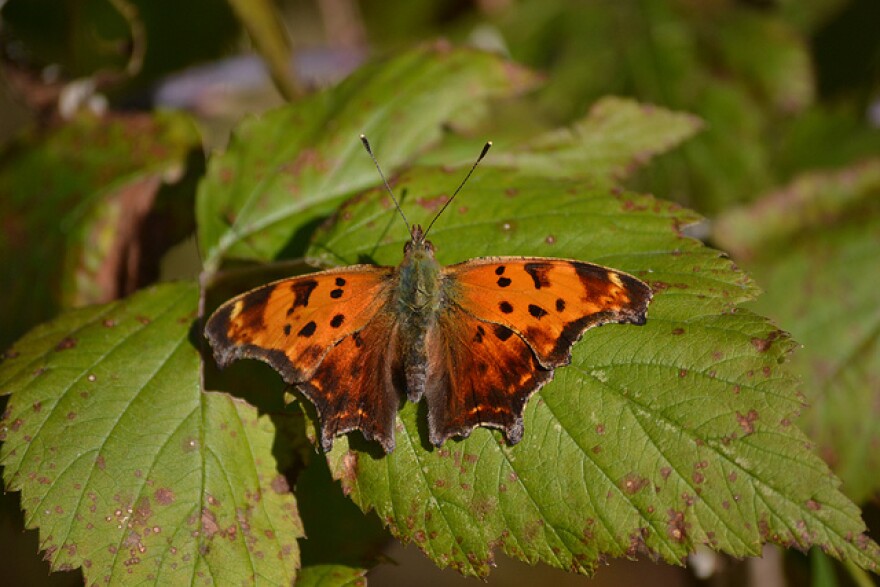The recent storm got me thinking about a fierce Christmas rain and wind storm just a few years ago. After the turbulence passed, I went outside on the back porch and hen I noticed a butterfly, a polygonia comma, perched on the head of the small stone crucifix one of my sisters had given the family some years ago.
Now I am a wavering and superstitious Christian, easily swayed by signs and sacraments, and so the appearance of the polygonia on a crucifix in the wake of a freak rainstorm on Christmas morning was bound to trigger some uneasiness of spirit.
The nature of my discomfort was hard to name, and all kinds of associations passed through my mind for the next several days.
On the one hand, I knew that this polygonia nativitatis (as I named it) belonged to a hibernating species, and spent the winter here as an adult. It was, I reasoned, no great surprise that the unseasonable wind and the rain had forced it from its retreat.
On the other hand, I could not stop wanting this butterfly to mean something. Was it one of those minute “butterfly effect” variables that might influence the entire weather of the world? Was this the butterfly whose wings would set off sunamis and cyclones in the Indian Ocean? Was this butterfly actually the cause rather than the effect of the storm (as a Chaos Theory physicist might argue)? Was it an Isaiah of global warming?
The polygonia remained on the stone crucifix for three days, seemingly indifferent to the cold. Then when I went out to check it on the 29th, the temperature at 16 degrees, the polygonia was gone. That night I was reading from Zen master Shunryu Suzuki: “Nothing comes from outside your mind,” he wrote. And I remembered, too, what a monk at Gethsemani had told me: “Epiphanies take time to unfold,” he said.
This is Bill Felker with Poor Will’s Almanack. I’ll be back again next week with notes for the first week of late winter. In the meantime, if you see a butterfly, what could that mean?



